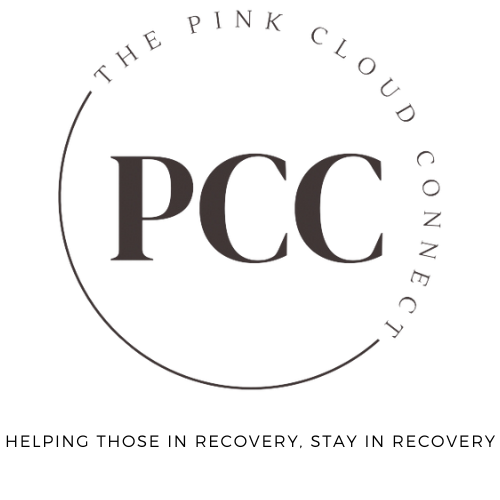Cited Sources
Sinha, Rajita. “New findings on biological factors predicting addiction relapse vulnerability.” Current psychiatry reports vol. 13,5 (2011): 398-405. doi:10.1007/s11920-011-0224-0 https://www.ncbi.nlm.nih.gov/pmc/articles/PMC3674771/
Lin Sternlicht & Aaron Sternlicht https://www.familyaddictionspecialist.com/blog/10-most-common-reasons-for-addiction-relapse https://www.whiteoakrecovery.com/addiction-blog/relapse-prevention/addiction-relapse-rates/
The U.S. Department of Health and Human Services’ (HHS) Substance Abuse and Mental Health Services Administration (SAMHSA) annual National Survey on Drug Use and Health (NSDUH), which shows how people living in America reported about their experience with mental health conditions, substance use, and pursuit of treatment in 2021. It is the most comprehensive report on substance use and mental health indicators that SAMHSA has released to date. https://www.samhsa.gov/newsroom/press-announcements/20230104/samhsa-announces-nsduh-results-detailing-mental-illness-substance-use-levels-2021 Retrieved on 2023, April 14.
Mass.gov https://www.mass.gov/lists/current-opioid-statistics#updated-data-%E2%80%93-as-of-december-2022- • Massachusetts Registry of Vital Records and Statistics, MDPH • Massachusetts Office of the Chief Medical Examiner • Massachusetts State Police • Population Estimates 2000-2010: National Center for Health Statistics. Postcensal estimates of the resident population of the United States, by year, county, age, bridged race, Hispanic origin, and sex (Vintage 2000-2010). • Population Estimates 2011-2019: Small Area Population Estimates 2011-2020, version 2019, Massachusetts Department of Public Health, Bureau of Environmental Health. Population estimates used for years following the decennial census were developed by the University of Massachusetts Donahue Institute (UMDI) in partnership with the Massachusetts Department of Public Health, Bureau of Environmental Health.
National Institute for Drug Abuse. (2020). Drugs, brains, and behavior: The science of addiction.
United States Department of Veteran Affairs. (2022, March 11). Reducing relapse risk.
Substance Abuse and Mental Health Services Administration. (2022, September 9). Resources for families coping with mental and substance use disorders.
NIDA. Treatment and Recovery. National Institute on Drug Abuse website. https://nida.nih.gov/publications/drugs-brains-behavior-science-addiction/treatment-recovery. March 9, 2023 Accessed May 1, 2023.
American Foundation for Suicide Prevention. https://afsp.org/suicide-statistics/#:~:text=In%202020%2C%20the%20suicide%20rates,middle%2Daged%20and%20older%20adults.
Hedegaard H, Miniño AM, Spencer MR, Warner M. Drug overdose deaths in the United States, 1999–2020. NCHS Data Brief, no 428. Hyattsville, MD: National Center for Health Statistics. 2021. DOI: https://dx.doi.org/10.15620/cdc:112340. Retrieved from https://www.cdc.gov/nchs/products/databriefs/db428.htm on 2023, May 20.
Additional Source Links
National Institute for Drug Abuse. (2020). Drugs, brains, and behavior: The science of addiction.
United States Department of Veteran Affairs. (2022, March 11). Reducing relapse risk.
National Harm Reduction Coalition. (n.d.). Principles of harm reduction.
Collins, S. E., Clifasefi, S. L., Nelson, L. A., Stanton, J., Goldstein, S. C., Taylor, E. M., …, & Jackson, T. R. (2019). Randomized controlled trial of harm reduction treatment for alcohol (HaRT-A) for people experiencing homelessness and alcohol use disorder. International Journal of Drug Policy, 67, 24-33.
Melemis, S. M. (2015). Focus: addiction: relapse prevention and the five rules of recovery. The Yale journal of biology and medicine, 88(3), 325.
Moos, R. H., & Moos, B. S. (2006). Rates and predictors of relapse after natural and treated remission from alcohol use disorders. Addiction, 101(2), 212-222.
National Institute for Drug Abuse. (2014). Principles of drug addiction treatment: A research based guide. (3rd edition).
Center for Substance Abuse Treatment. (2015). Detoxification and substance abuse treatment. Treatment improvement protocol (TIP) series, no. 45. HHS Publication No. (SMA) 15-4131. Rockville, MD.
National Institute on Alcohol Abuse and Alcoholism. (n.d.). Treatment for alcohol problems: Finding and getting help.
Substance Abuse and Mental Health Services Administration. (n.d.). Supporting a loved one dealing with mental and/or substance use disorders.
Substance Abuse and Mental Health Services Administration. (2022, September 9). Resources for families coping with mental and substance use disorders.
Al-Anon Family Groups. (n.d.). Who are Al-Anon members?
Walker, Leah K. Drug and Alcohol Addiction Relapse: Stages, Prevention, and Treatment. https://drugabuse.com/addiction/relapse/
American Foundation for Suicide Prevention https://afsp.org/suicide-statistics/#:~:text=In%202020%2C%20the%20suicide%20rates,middle%2Daged%20and%20order%20 adults
American Foundation for Suicide Prevention Fact Sheet- https://www.datocms-assets.com/12810/1649682186-14296_afsp_2022_national_fact_sheet_update_m1_v4.pdf
American Foundation for Suicide Prevention Fact Sheet Massachusetts- https://aws-fetch.s3.us-east-1.amazonaws.com/state-fact-sheets/2022/2022-state-fact-sheets-massachusetts.pdf
Drug Abuse Statistics https://drugabusestatistics.org/alcohol-related-deaths/
U.S. Department of Health and Human Services, Centers for Disease Control and Prevention (CDC) [Internet]. National Center for Health Statistics Mortality Data on CDC WONDER. Multiple cause of death, 2018–2021. 2023. [cited 2023 Feb 9]. Available from: https://wonder.cdc.gov/controller/saved/D157/D324F825
Center for Disease Control and Prevention (CDC) [Internet]. Available from: https://www.cdc.gov/alcohol/features/excessive-alcohol-deaths.html
Center for Disease Control and Prevention (CDC) [Internet]. Alcohol-Related Disease Impact (ARDI) Application. Available from: https://nccd.cdc.gov/DPH_ARDI/Default/Report.aspx?T=AAM&P=612EF325-9B55-442B-AE0C-789B06E3A8D5&R=C877B524-834A-47D5-964D-158FE519C894&M=DB4DAAC0-C9B3-4F92-91A5-A5781DA85B68&F=&D=
National Center for Statistics and Analysis, National Highway Traffic Safety Administration. Overview of Motor Vehicle Crashes in 2021 [Internet]. Washington: U.S. Department of Transportation; 2023 Apr [cited 2023 Apr 12]. 50 p. Available from: https://crashstats.nhtsa.dot.gov/Api/Public/ViewPublication/813435
Alpert HR, Slater ME, Yoon YH, Chen CM, Winstanley N, Esser MB. Alcohol consumption and 15 causes of fatal injuries: a systematic review and meta-analysis. Am J Prev Med. 2022;63(2):286-300. PubMed PMID: 35581102
Berglund M, Ojehagen A. The influence of alcohol drinking and alcohol use disorders on psychiatric disorders and suicidal behavior. Alcohol Clin Exp Res. 1998;22(7 Suppl):333S-345S. PubMed PMID: 9799958
